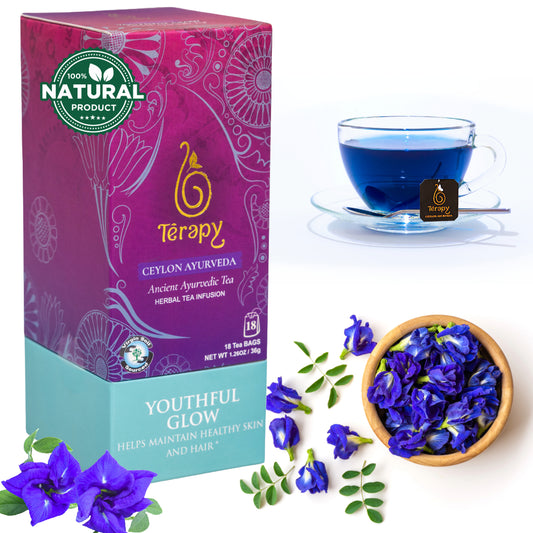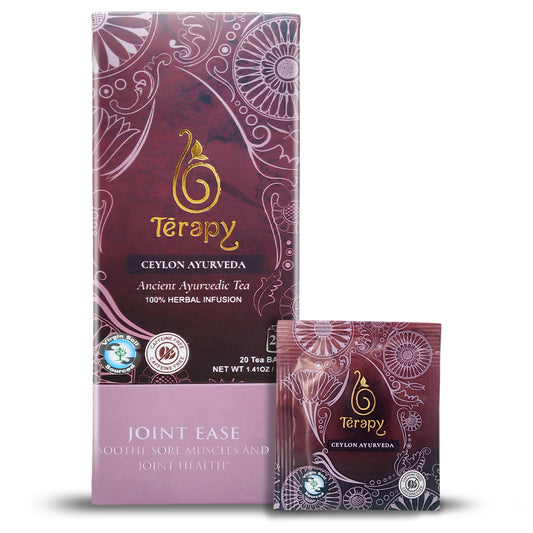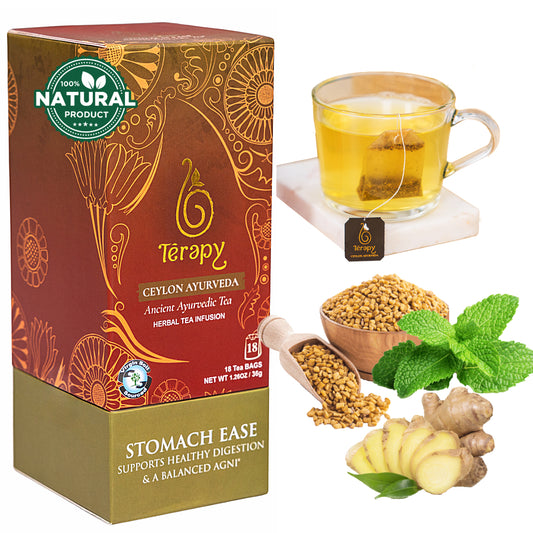Ginger: The Ayurvedic Wonder Herb

Ginger (Zingiber officinale), a common kitchen spice, is celebrated in Ayurveda and other traditional medicine systems for its therapeutic benefits. Known as Shunti in Sanskrit, ginger has been a cornerstone in Ayurveda for centuries, valued for its ability to balance the body's internal systems and promote overall well-being.
Health Benefits of Ginger in Ayurveda

-
Digestive Aid
Ginger is revered in Ayurveda for enhancing Agni (digestive fire), which is crucial for proper digestion and metabolism. It alleviates symptoms of indigestion, bloating, and nausea. Consuming fresh ginger with a pinch of rock salt before meals is a classic Ayurvedic practice to stimulate digestion. -
Anti-Inflammatory Properties
Its anti-inflammatory and pain-relieving properties make ginger effective against arthritis, muscle soreness, and chronic inflammation. In Ayurveda, ginger paste is often applied externally to reduce joint pain and swelling. -
Immune Support
Ginger helps boost immunity by fighting pathogens and clearing toxins (Ama) from the body. Ginger tea is a popular remedy for colds, coughs, and sore throats, often combined with honey and lemon for added effectiveness. -
Respiratory Health
Ginger is a decongestant and expectorant, useful for clearing respiratory blockages. It is commonly used in Ayurvedic treatments for asthma, bronchitis, and sinusitis. -
Balancing the Doshas
Ayurveda identifies ginger as a tridoshic herb, which means it can balance Vata, Pitta, and Kapha doshas when used appropriately. It is particularly beneficial for Kapha disorders like congestion and Vata imbalances like joint pain. -
Women's Health
Ginger is a remedy for menstrual discomfort and is believed to support hormonal balance. Ayurvedic practitioners often recommend ginger tea during menstrual cycles to alleviate cramps.
Ginger in Traditional Medicine
Ayurveda
Ginger’s role in Ayurveda extends beyond its culinary uses. It is a key ingredient in numerous Ayurvedic formulations, such as Chyawanprash and herbal teas, aimed at enhancing immunity, detoxifying the body, and promoting longevity.
Traditional Chinese Medicine (TCM)
In TCM, ginger is used to "warm" the body and treat colds, flu, and digestive issues. It is also believed to improve blood circulation and alleviate nausea.
Other Systems
Ginger is also utilized in Unani and Siddha medicine for its ability to treat conditions ranging from digestive issues to respiratory ailments. Modern herbal medicine has adopted ginger for its anti-nausea and anti-inflammatory effects.
Modern Perspectives
Research corroborates many of ginger’s traditional uses, highlighting its potential in treating metabolic disorders, reducing inflammation, and improving cardiovascular health. It contains bioactive compounds like gingerols and shogaols, which exhibit antioxidant, anti-inflammatory, and antimicrobial properties.
Conclusion
Ginger’s enduring presence in traditional medicine systems like Ayurveda speaks to its efficacy and versatility. Whether consumed fresh, dried, or as an infusion, ginger continues to bridge the gap between ancient wisdom and modern health practices, offering natural remedies for a wide range of ailments.
Featured collection
-

Youthful Glow Tea
SaleYouthful Glow Tea
Regular price From $17.99Regular priceUnit price / per$19.99Sale price From $17.99Sale -

Slimming Garcinia Tea
SaleSlimming Garcinia Tea
Regular price From $17.99Regular priceUnit price / per$19.99Sale price From $17.99Sale -

Joint Ease Tea
SaleJoint Ease Tea
Regular price From $14.99Regular priceUnit price / per$17.99Sale price From $14.99Sale -

Stomach Ease Tea
SaleStomach Ease Tea
Regular price From $15.99Regular priceUnit price / per$17.99Sale price From $15.99Sale





